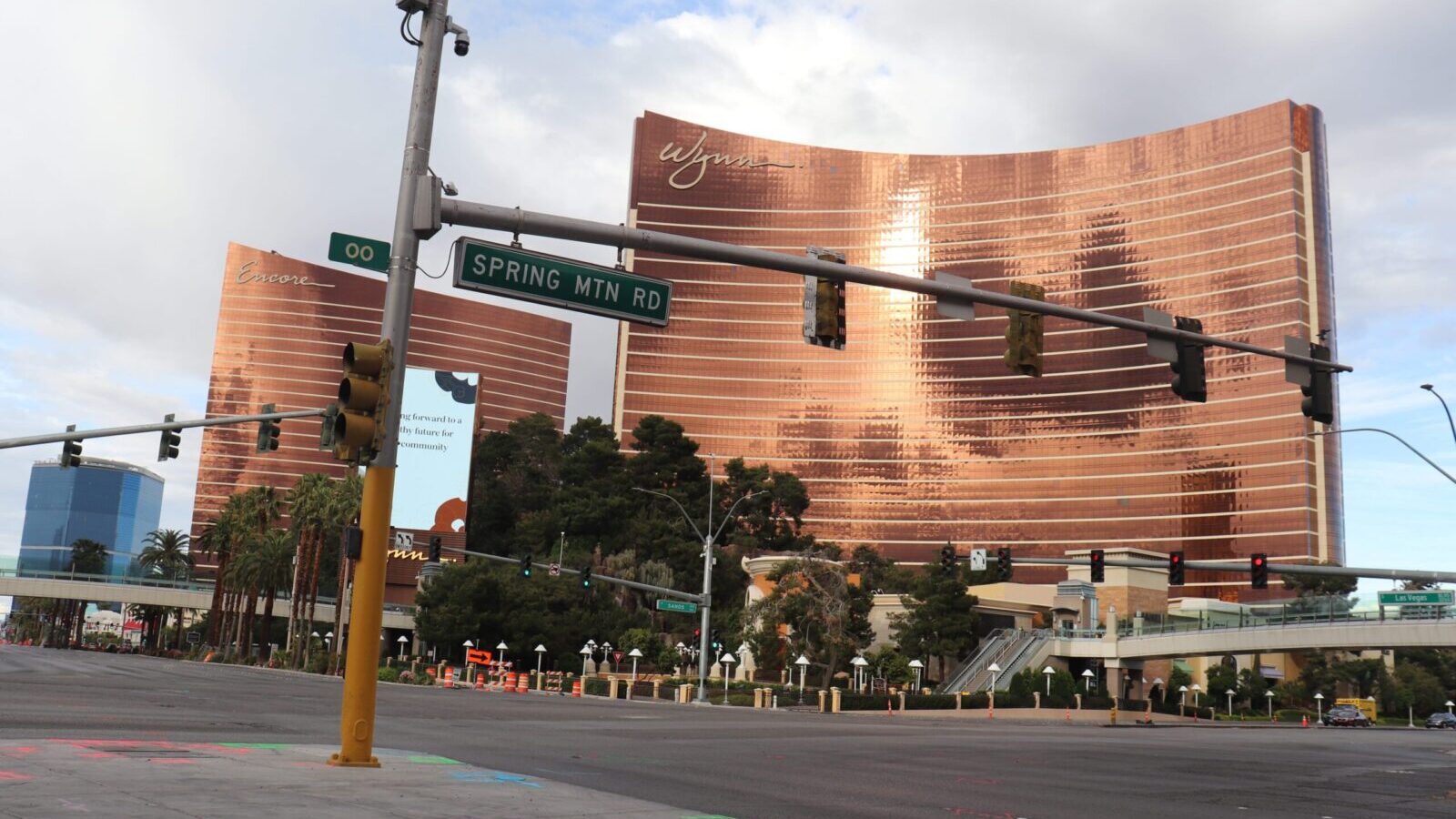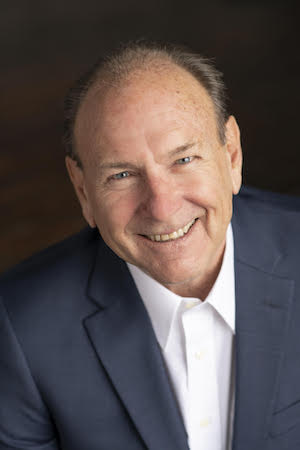Schuetz: Wynn Has Its Day Of Reckoning, But Much Nevada Reckoning Remains
At latest commission meeting, Fontainebleau found itself ensnared in the mess
8 min

“If you want to change the future, you must change what you’re doing in the present.”
— Mark Twain
Well, another boot has dropped in Nevada’s regulatory circus.

In the Silver State’s continuing regulatory theater of the absurd, Wynn Las Vegas’ day of reckoning with the Nevada regulators arrived. Many of us had been waiting for it.
Over 10 years after it started, and nine months after the feds had acted, the Nevada Gaming Control Board marched out into the battlefield to shoot the wounded. This act is getting old.
The Wynn event, like the complaints regarding MGM Grand and Resorts World Las Vegas, involved numerous people and lasted for an appreciable amount of time. Based on the press release by the U.S. Attorney’s Office, multiple Wynn Las Vegas (WLV) employees acted with the knowledge of their supervisors and involved several casino departments in committing the alleged crimes, for which the company paid over $130 million to make it go away. Within the press release, it was noted:
“In one example, Juan Carlos Palermo, while acting as an independent agent for WLV, operated and controlled multiple unlicensed money transmitting businesses in the United States and abroad that conducted more than 200 transfers with bank accounts controlled by WLV or associated entities. These transactions, on behalf of more than 50 foreign casino patrons, exceeded $17.7 million.”
One should note that the amount of the forfeiture exceeded $130 million, meaning the above-noted example was merely a part of what was happening. It was also mentioned that this activity was undertaken to “… evade foreign and U.S. laws governing monetary transfer and reporting.” Beyond that, the alleged sins of the Wynn included allowing proxy betting.
This qualifies as organized crime by the legal definition, which is also true of the events chronicled by the federal and state actions against the MGM Grand and Resorts World. And we thought Nevada had grown beyond that.
And it isn’t over, for if one is to listen to a player in the MGM and Resorts World craziness, Scott Sibella, he clearly indicates that numerous individuals and institutions have gotten away with it in Las Vegas. He suggests that there are many stones unturned out there and indicates that he talked to the Gaming Control Board about them. I suspect that Nevada Gaming Control is waiting for the feds or a journalist to point them out again, for they seem incapable of initiating anything. As I mentioned, they like walking into the battlefield after the battle and shooting the wounded.
Et tu, Fontainebleau?
The world of gaming regulation in Nevada has been pulverized by a storm of bad stories that have dominated the national and global press for the last two years. To put it bluntly, this is terrible news and very poor optics.
The Nevada Gaming Commission meeting of last Thursday, May 22, was well worth watching. I would especially suggest two of the agenda items.
Non-restricted item No. 8, addressed the licensing application of Maurice Wooden to be president of the Fontainebleau (at the two-hour, 40-minute mark of the YouTube stream hyperlinked above), is a fascinating listen.
The second item concerned the Wynn settlement with Nevada relating to the $130 million forfeiture to the U.S Attorney’s Office (at the five-hour, 14-minute mark).
I tuned in for the Wynn matter, but the Wooden licensing was a real bonus. Wooden was president of Wynn Las Vegas from 2013 to 2018. That was an interesting time to be president of Wynn, as it coincided with the dates involved in the non-prosecutorial agreement between Wynn and the U.S. Attorney’s Office, also known as the $130 million forfeiture deal. It was also the case that Wooden and Steve Wynn both left the company in 2018. Wynn stepped down as a result of widespread allegations of sexual improprieties with employees of his company, and, oh, Wooden was responsible for those employees.
It does seem that if nothing else, Wooden was a bit of a jinx to Wynn Las Vegas, for during his tenure as president, a whole lot of things went off the rails. It is somewhat unusual for a president not to have a hint about such things.
Commissioner Rosa Solis-Rainey found this particularly interesting and did a great impersonation of Sen. Howard Baker during the 1973 Watergate Hearings with her rendition of “What did you know and when did you know it?” Commissioner Solis-Rainey is smart and does her homework.
A bonus round was included in this agenda item, which revealed an investigation taking place at Fontainebleau concerning a credit situation involving a fascinating instance of an owner-approved credit line (which is a new concept to me). The revelation appeared to result from some sloppy work by the Gaming Control Board, but the cat did get at least its head out of the bag.
Dana Gentry provided excellent coverage of this situation here. The best guess is that it concerns illegal bookmaker Damien LeForbes, and it involves millions of dollars. It was also apparently not reported to the district attorney for collection, and my guess is that the property did not want to alert Nevada that it was dealing with a convicted illegal California bookie and money launderer.
What was fascinating about this is that Wooden did not appear to be familiar with this investigation. Wooden has an amazing quality of being unaware of what is going on with the properties he is responsible for. He may want to consider setting up an X (formerly Twitter) feed, where he can learn information like this:
Stay tuned.
A relative win by Wynn
As the Wynn agenda item started, I had low expectations, understanding I had watched both Resorts World and MGM address their cases earlier in the year. I thought the “bad apple” defense by MGM was delusional and demonstrated a denial of the severity and breadth of the problem, which should have been obvious. The MGM has grand plans to fix this and that, and everything should be hunky dory. This was, in my opinion, the Nevada Gaming Commission at its least impressive.
The Resorts case has not aged well. The new president imported into the property to right the ship lasted but a few months, and the specially picked new chair of the property was the chair of MGM Resorts when the money laundering/illegal bookie nonsense was taking place there. I find it a bit odd for a casino to appoint a person to chair a casino company with a money laundering and illegal bookie problem who had a similar issue at the last casino he chaired.
Gambling is a strange industry, and I am often amazed at how difficult it is for some executives to fail.
As I mentioned, after these two cases, I had low expectations while waiting for the Wynn case to be heard before the commission.
I was wrong.
The Wynn presentation amazed me. It was the best presentation I have ever seen at a regulatory meeting, understanding that I am a very old dude, having entered the industry in 1971, and having attended hundreds of regulatory meetings as an executive and as a regulator.
Wynn Chairman Phil Satre did what Phil Satre does: kept it solemn, short, was accountable, acted like an adult, and got out of the way. Oh, and he had great hair.
Erica Okerburg, of Greenberg Traurig, is as good a counsel as can be had in a regulatory environment. She is incredible, and they should find a special place for her in the Gambling Hall of Fame. She also had great hair.
Brian Benczkowski, of the D.C. office of Kirkland & Ellis, was a tour de force and has forgotten more about money laundering and the financing of terrorism than most experts know. His hair? It has issues.
The commission should force every operator in the state to watch the Wynn presentation. Perhaps the other operators would be inspired to surround themselves with such talent and work to provide real compliance solutions — and not just pretend compliance solutions as public relations tools.
I continue to be impressed with Commissioner George Markantonis. He is a hotel and resort professional at heart, but has excellent insights into the casino side of things. He is also always one of the adults in the room. Of the commission members, he seems to best understand the damaging impact all of this has on the industry and the state. When he discusses it, one can tell that this bothers him on both an intellectual and emotional level.
Good instincts, no rubber stamps
Commissioner Solis-Rainey also plays a crucial role on the commission. Several meetings ago, when Sibella was part of the topic, she had noted the discrepancy regarding what Sibella claimed as his betting behaviors with Wayne Nix, versus how the federal government described that betting relationship. Her instincts and intelligence were spot on, for that was a huge issue, considering Nix was an illegal bookie, and it was this individual whom Sibella pled out to by not filing a Suspicious Activity Report, a violation of the Bank Secrecy Act.
Unfortunately, she did not push it, as can happen in a group on the last agenda item of the day.
I like that Commissioner Solis-Rainey is willing to stand alone and not fall into the groupthink vibe. At the Wynn meeting, she was very prepared and gave every impression of wanting to get to the truth and to do the right thing. She is not there to rubber-stamp anything. She is a valuable asset to the state’s regulatory portfolio, and she understands casinos.
The most critical audience for the Wynn presentation was the commission. It saw a great effort from Wynn after having gone through some very mediocre previous presentations by MGM and Resorts. The commission now knows where to set the bar.
I cannot let Wynn totally off the hook. It strains the credulity of this old casino guy to suggest only six employees were aware of this misbehavior (plus three foreign agents). If employees within the cage were unaware that something was rotten in the state of Denmark, as the expression goes, they should not work in a cage. The folks in the cage had to know something was fundamentally funky.
And, as Commissioner Solis-Rainey pointed out, there are shift and pit bosses, security, surveillance, and a whole bunch of other people who may not have been aware of the details, but knew something was haywire. This would even be true in a salon privé. This is especially true with the proxy stuff. It was clear that Solis-Rainey was not buying the six-employee argument either.
I also worked for Steve Wynn over 40 years ago. I would bet my bottom dollar that other people within the organization knew what was happening, for, going back to another Watergate expression, when I worked for him, he really followed the money, and because he followed the money, so did many of the mini-me type of folks that worked for him. This money flow would have been noticed and discussed.
I also do not entirely accept the foreign language issue, but it was a brilliant defense. I have spent hundreds of hours watching gambling take place on monitors without sound in surveillance rooms and on monitors in my offices as a casino executive, and as Yogi Berra argued, “You can observe a lot just by watching.”
The timing of the Wynn presentation could not have been better for the Nevada Gaming Commission. The Gaming Control Board has a lame-duck chair, Kirk Hendrick, who is ready to head for the exit. It also has a new rookie member, Chandeni Sendall, who is just beginning to learn the ropes. The third member, George Assad — whose appointment in 2023 came with a variety of asterisks — would best serve the state by pursuing an alternative career.
The board needs to be fixed, needs to get in some laps, needs to build its team and fix the culture. That will take time.
That leaves the commission as the adults responsible for initiating the long slog back to Nevada regaining respectability as a first-class regulatory environment.
I think the commission is growing into it. Its members need to understand the importance of kicking ass and taking names if they expect this nonsense to stop. They have the talent to lead this renaissance; they just need to buckle down and do it.






